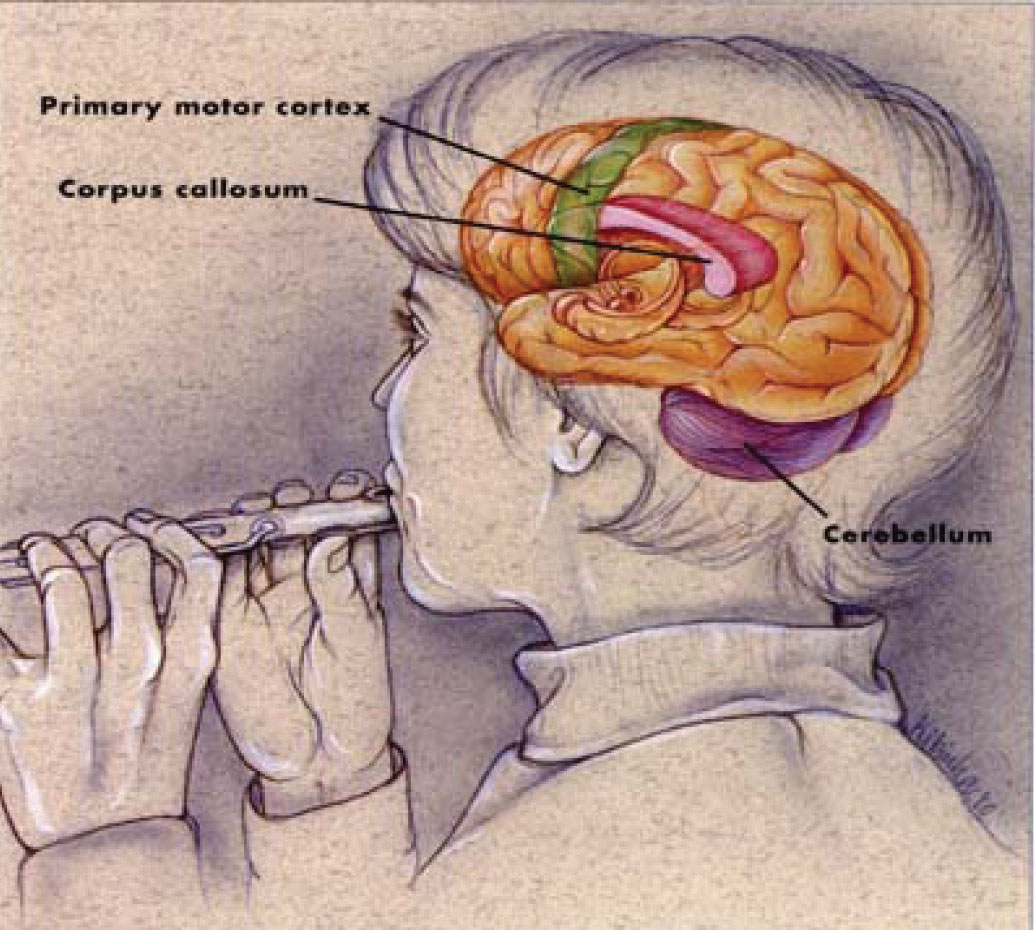Music and the Brain
Guess what? If you’re looking for a way to significantly increase your child’s chances of doing great things in life, it behooves you to consider allowing them to be formallytrained on a musical instrument! Why? Well, research in neuroscience (the science of how brains develop and change) is proving that learning to read and play music remarkably influences the brain. In fact, certain, key brain structures are differentially impacted in musicians because formal, musical training “beefs-up” brain circuitry. Brain imaging (realtime pictures of the actual brain) research confirms that several, critical brain areas are more well-developed in adult musicians than in non-musicians. It’s no surprise then that we see that children who are formally trained to read (music theory) and play a musical instrument, will evidence enhanced cognitive skill-sets as compared with their non-musician counterparts. As a brief example, one recent study revealed that second-graders who took piano lessons and played math games score higher on math tests than children who played the same math games but who took English language instruction instead of piano lessons. Furthermore, some musically/math-trained second-grade students perform as well as fourth-graders in fractions, ratios, symmetry, graphs, and other pre-algebra problems compared with their non-musically trained counterparts. The explanation for these and a multitude of other, similar findings involving cognition in musicians is simple: formal, musical training uniquely challenges cognitive processes in an unprecedented manner, contributing to enhanced cognitive capabilities by virtue of the specialized demands required to read musical notes and manipulate a musical instrument---in time (tempo)! The outcome? Profound. Having a musically-trained brain is, by way of analogy, like having the most accelerated computer processor (chip) on-board; it makes analyses, computations, predictions, estimations, reasoning and other problem-solving realizable! Formal, musical training (learning to read and play an instrument) can and does influence brain organization which enhances cognitive and intellectual functioning. It’s an investment for life…a great life that is!
Kevin E. Booker, Ph.D.
Trauma and Clinical Neuropsychology
South Bay Trauma: Forensics and Behavioral Medicine, Los Angeles, CA

